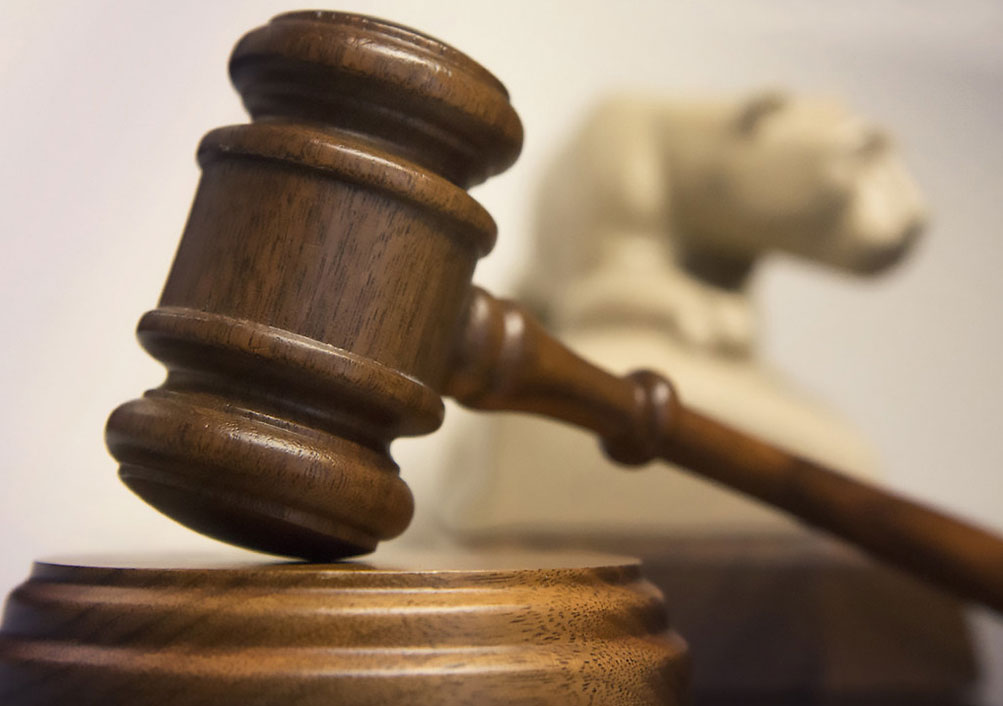In Criminal Appeal No. 871 of 2021-SC- Sec.54 of NDPS Act raises presumption and burden shifts on accused to explain as to how he came into possession of contraband; To raise such presumption, it must be established that recovery was made from accused: SC
Justices V. Ramasubramanian & Indira Banerjee [30-08-2022]

Read Judgment: SANJEET KUMAR SINGH @ MUNNA KUMAR SINGH v. STATE OF CHHATTISGARH
Mansimran Kaur
New Delhi, September 1, 2022: Once it is established that the contraband was recovered from the accused’s possession, a presumption arises under Section 54 of Narcotic Drugs and Psychotropic Substances Act, 1985,the Supreme Court has held.
The Division bench of Justice V. Ramasubramanian and Justice Indira Banerjee allowed the instant appeal preferred by the appellant assailing his conviction for an offence punishable under Section 20(b)(ii)(C) of the Narcotic Drugs and Psychotropic Substances Act, 1985 and the sentence of rigorous imprisonment for 10 years together with a fine of Rs.1 lakh imposed upon him by the Special Court and confirmed by the High Court of Chhattisgarh.
The Division bench was of the view that if the independent witnesses come up with a story which creates a gaping hole in the prosecution theory, about the very search and seizure, then the case of the prosecution collapses like a pack of cards.
The case of the prosecution was that on May 31, 2015, the Station House Officer of Chakarbhata Police Station received a secret information that the appellant and his friend Reena Das, were carrying ganja in the dickey of a car and were traveling from Raipur to Pendra Road. The SHO recorded this information and forwarded the said information to the higher officer.
Subsequently, a search was conducted and 47.370 Kgs. of ganja kept in three bags in the dickey of the car was recovered. In pursuance of the same, Charge- sheet was filed against the appellant as well as his friend Reena Das for an offence punishable under Section 20(b) of the Act. A notice
By a judgment dated May 10, 2017, the Special Court convicted the appellant for the offence under Section 20(b) (ii) (C) of the Act, and imposed a sentence of rigorous imprisonment of 10 years. However, the co-accused Reena Das was acquitted by the Special Court.
The State did not file any appeal against the acquittal of Reena Das, who was the co accused. However, the appellant filed an appeal on the file of the High Court of Chhattisgarh, Bilaspur. The appeal was dismissed by a judgment dated October 1, 2019. In view of the same, the present appeal was preferred.
After considering the rival contentions of the parties, the Court noted that as per the decision of the Constitution Bench of this Court in Mukesh Singh vs. State, the fact that the informant also happened to be the investigator, may not by itself vitiate the investigation as unfair or biased. It was further noted that it is not always necessary that the evidence of the police witnesses have to be corroborated by independent witnesses, as held in Dharampal Singh vs. State of Punjab and Mukesh Singh (supra).
In addition to the same, the Court also noted that the independent witnesses turning hostile need not necessarily result in the acquittal of the accused, when the mandatory procedure is followed and the other police witnesses speak in one voice as held in Rizwan Khan vs. State of Chhattisgarh.; and lastly it was noted that once it is established that the contraband was recovered from the accused’s possession, a presumption arises under Section 54.
However, if the Court has to completely disregard the lack of corroboration of the testimony of police witnesses by independent witnesses; and has to turn a Nelson’s eye to the independent witnesses turning hostile, then the story of the prosecution should be very convincing and the testimony of the official witnesses notably trustworthy. If independent witnesses come up with a story which creates a gaping hole in the prosecution theory, about the very search and seizure, then the case of the prosecution collapses like a pack of cards, the Court stated, the Court further remarked.
In the present case, the independent witnesses who turned hostile, not only denied having witnessed anything, but also came up with a plausible explanation as to how their signatures found their place in the documents mentioned by PW-7. According to both the independent witnesses, they went to the police station in connection with some other dispute relating to the members of the Sindhi community. These two witnesses claimed to be elected councilors of the local Panchayat and this claim was not challenged by the Additional Public Prosecutor in cross examination, the Court noted.
Thus, in light of the above stated findings, the Court was of the considered view that the appellant was also entitled to the benefit of doubt. Therefore, the appeal was allowed.
Sign up for our weekly newsletter to stay up to date on our product, events featured blog, special offer and all of the exciting things that take place here at Legitquest.




Add a Comment